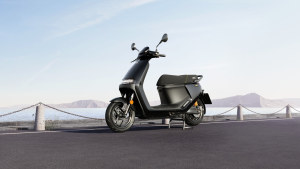Today
- Opinion
- Opinion

Control of the sea is worth gambling on AUKUS
To any objective observer it is apparent acquiring SSNs has significant advantages for national security. However, these come with major costs and risks.
- 1 hr ago
- Richard Dunley
This Month
- Exclusive
- Donald Trump

Australia might blink at AUKUS cost, fears Trump’s ex-Pentagon chief
A former top security official under Donald Trump says AUKUS would be safe under a Trump administration but he is more worried Australia could baulk at the hefty cost.
- Andrew Tillett
- Opinion
- UK election

The Conservatives imploded. Labour simply filled the vacuum
Labour’s landslide shares some parallels with Tony Blair’s 1997 win but those end with Keir Starmer’s small target strategy and threadbare policy.
- Michael Turner
- Opinion
- Opinion

There is no catastrophic failure of AUKUS Plan A
The “optimal pathway” may not run exactly to plan, but the risk is known, is being managed, and all three partners have demonstrated their commitment to the process.
- Jennifer Parker

Why AUKUS could cost billions and leave us with nothing
This week on The Fin podcast, International Editor James Curran goes inside the AUKUS deal and reveals why a key group of critics believes it could be a financial and strategic disaster.
- Analysis
- Analysis

AUKUS future is resting on belief alone
Defence and government figures brim with confidence over Australia’s nuclear submarine program, but there’s no Plan B and – to some – there’s an air of desperation.
- James Curran
- Opinion
- Letters to the Editor

Levy on coal, gas and iron ore exporters could save AUKUS subs
Readers’ letters on saving submarines; the consumer data right; responsibility for scams; renewables’ potential; opportunities for independents; and the UK election.
- Opinion
- Trump's White House

A resurgent Trump will have consequences for Australia
Trump 2.0 will pile rising expectations in Washington on Australia’s military readiness and on its strategic minerals. But that’s just the start.
- Patrick Gibbons
- Exclusive
- Defence

Senior WA minister airs doubts on AUKUS submarine schedule
WA Defence Industry Minister Paul Papalia believes Australia is likely to receive five US-made nuclear-powered submarines, implying delays in the ones to be built.
- Andrew Tillett
- Opinion
- USA

AUKUS ‘moonshot’ may be a tragically expensive failure
It is alarming that both Coalition and Labor politicians fail to acknowledge the risk that Australia could be left with no submarine capability by the end of the 2030s.
- James Curran
- Exclusive
- USA

‘A cruel joke’: Why AUKUS might leave Australia stranded
A group of defence experts says that the Albanese government is on course for a financial and strategic AUKUS disaster, in the final part of an exclusive series.
- James Curran
- Opinion
- The AFR View

On AUKUS, Australia must catch up, not start again – yet again
Australia’s political, diplomatic and defence chiefs need to work with AUKUS counterparts in America and Britain to find a way through the gridlock.
- The AFR View
- Opinion
- Letters to the Editor

Australia needs more transparency in important policy debates
Readers’ letters on politicians’ lack of detail; Labor action against Fatima Payman; the value of accountants; why Joe Biden must withdraw; and Peter Dutton’s nuclear charade.
- Opinion
- Nuclear energy

There is a respectable economic argument for nationalised nuclear
The bottom line is that there are sound public choice arguments for the government to build and own nuclear power plants.
- Sinclair Davidson
- Investigation
- Investigation

Morrison’s ‘longest night’: Inside the making of AUKUS
The military agreement is a mess and risks leaving Australia with no submarine capability at all by the late 2030s. The cloak of secrecy that secured the deal could now be its undoing.
- James Curran
June
- Opinion
- UK

Will Keir Starmer go wobbly on AUKUS?
The fantasy of a post-Brexit “global Britain” is gone, but British Labour says it will be everywhere around the world, and all at once.
- James Curran

Assange row erupts; Law firms boom; Meet Australia’s priciest lawyer
Read everything that’s happened in the news so far today.
- Exclusive
- UK election

AUKUS safe under Labour: next UK minister for Australia
Australian-born Catherine West, who will be minister for Asia and the Pacific if Labour wins the election, rejects Tory claims the subs deal is at risk.
- Updated
- Hans van Leeuwen

PM tells troops to campaign on cost of living and nothing else
Anthony Albanese has told his troops July 1 will be a critical day, and they must be out in their electorates.
- Phillip Coorey

Risk of war with China rising fast, ex-security chief warns
Former Home Affairs Department head Mike Pezzullo wants a new defence production tsar with “superpowers” to shake up how the military acquires weapons.
- Andrew Tillett



